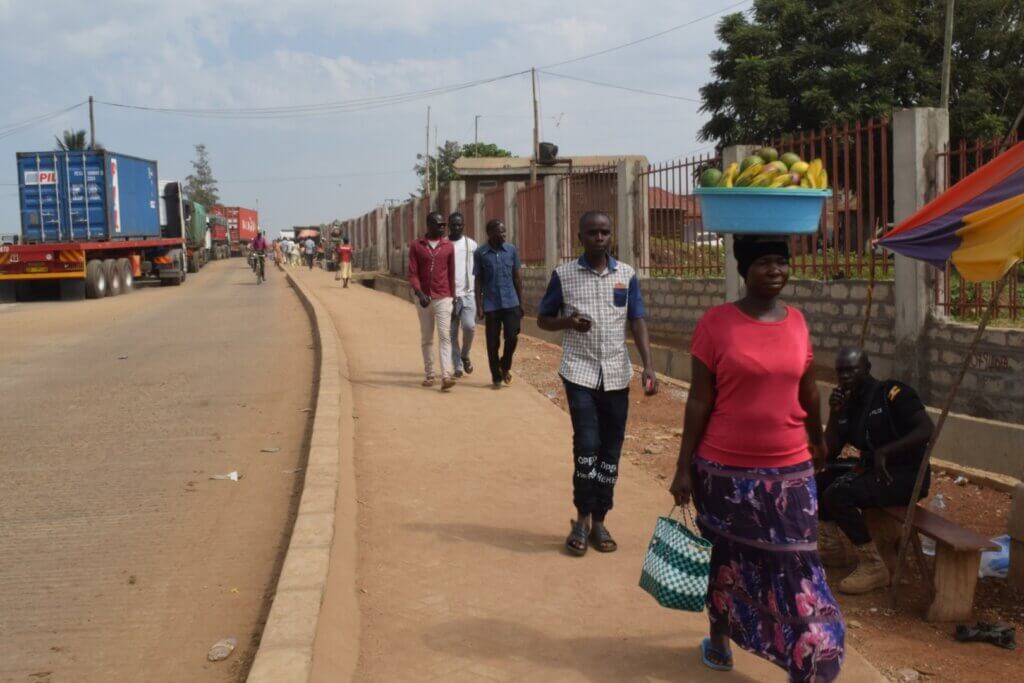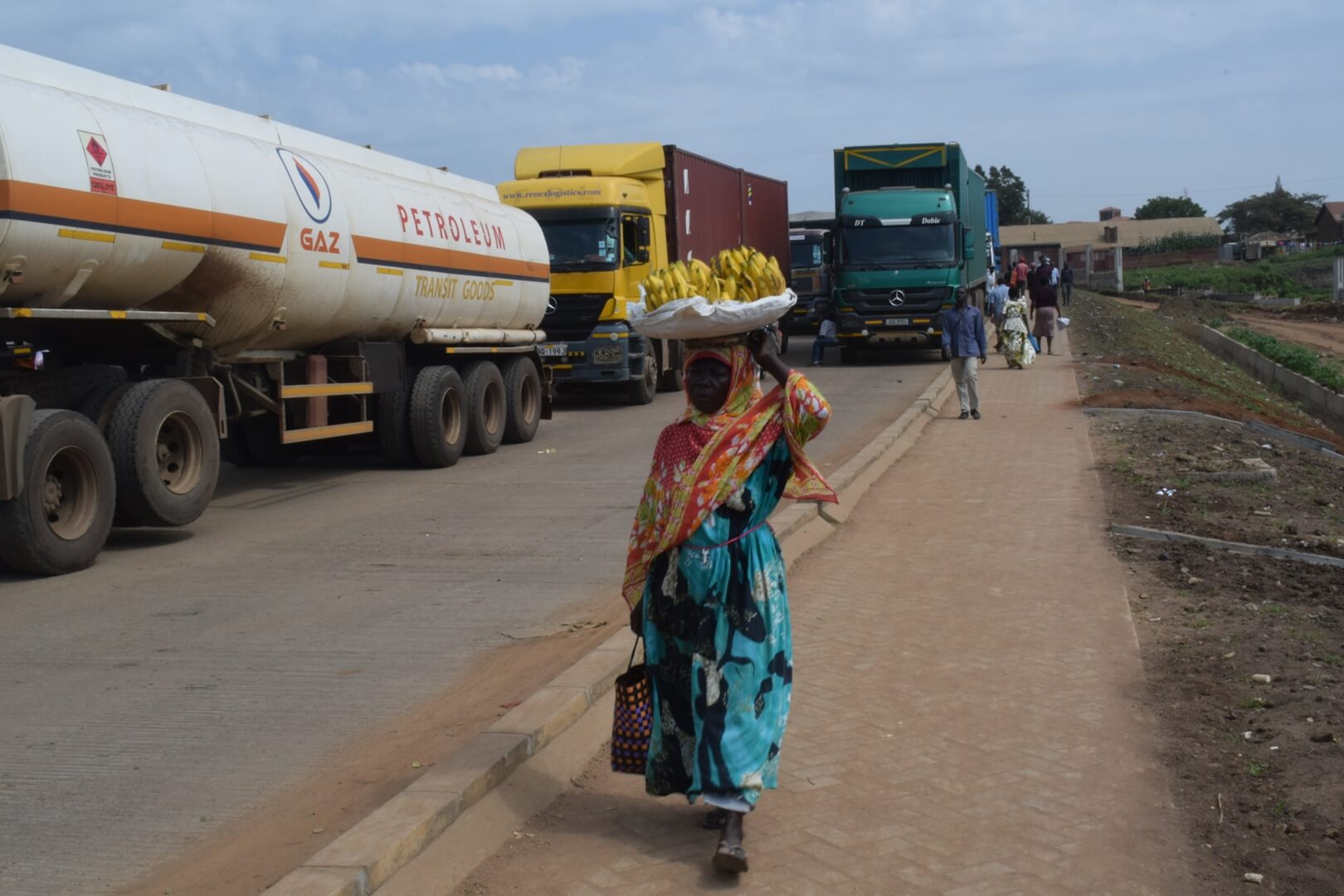Modesta Nekesa, 31, has been a farmer for most of her adult life. However, it was not until two years ago that she started making money from her land by cultivating and selling a crop that was unfamiliar in her community – chilli.
Ms. Nekesa lives in Busia, a town on the Kenya-Uganda border where she moved to after getting married at 17. She was widowed at 23 with three children. Her late husband, Michael Oluoch had bequeathed her five acres of land, but inheritance tussles saw half of it taken away by her brothers-in-law.
And so, destiny subjected her to a life of subsistence, cultivating maize, beans, and occasionally sweet potatoes. She barter-traded some for other household utilities and the largest portion was consumed by her young family.
“We fed off the land, and for years, I never had a shilling to my name. Any little money I got from selling part of my (not-so-good) harvests was immediately spent on books, pencils, uniform repairs or other such immediate needs,” she said.
All this changed after Ms. Nekesa accepted an invitation from a friend to attend an agriculture seminar organised by the Joyful Women Organization (JOYWO), an implementing partner of TradeMark Africa’s (TMA) Women and Trade programme. This course opened her eyes to a world of farming entrepreneurship.

such immediate needs,” Ms. Nekesa said.
“I attended the training as a good way to pass time as the rains had delayed thus there was little farm work,” she says, a hearty laughter breaking the seams of her face.
The training introduced Nekesa and 99 other Busia residents to chilli farming, value addition and cross border trade.
“The programme started by recruiting interested members, then later they are trained on the best farming practices and market access modules. Such included training in GAP standards, business management, record keeping and market identification, Gilbert Metto, then Head of Department, Table Banking at JOYWO explained.
After the training, Nekesa acquired the African Bird Eye chili seed variety which takes just three months to mature, with a harvesting season lasting 3-4 months. On average, a well-managed chilli crop has a productive lifespan of 2-3 years, with yields of 1000-3000Kg an acre per harvest, after which it is advisable to rotate with tubers such as cassava, yams and sweet potatoes or legumes like beans, peas and lentils.
“I have always had one or two chilli plants next to my house, but just for domestic use. It had never occurred to me that with economies of scale, I could actually make some money from the crop,” Nekesa said.
She needed about 200g of the seed to cover half an acre of land.
“Even with the knowledge I had acquired from the training, I still considered this new venture a gamble, hence the hesitation to plant more acreage,” Nekesa said. The rains came soon after and, in a calculated fashion, dissipated in just under three months, the time it takes for chili to ripen.
Nekesa’s first chilli harvest, early 2018, totalled 300kg, which she sold at KSh30 (£0.24) per Kg to middlemen, who had inroads to Kampala, the capital city of Uganda, where there was high demand.
“The Ksh. 9,000 (US$ 94) may not seem like much to some, but it was the first real money I made, and, for once, I was sure my children would stay in school a full year,” she said.
Her second season yielded a lot more having increased the size of coverage to one and a half acres. With her group she had also found a new market, this being a processing plant in Eldoret a Kenyan town some 166Km from Busia. The processing plant gave her better prices. The processor’s requirements are, however, stringent hence the need for better husbandry, a skill she had learned during the JOYWO training. Fueled by the new market demand and support from JOYWO, Ms. Nekesa became a semi-professional chilli farmer. With her confidence soaring from the training and success of first attempt Ms. Nekesa decided to bypass middlemen and directly delivered her Chilli to Uganda where she discovered that the middlemen were ripping her off almost KSh20 (US$0.19) per Kg.
Women account for 51% of the informal cross-border traders at Busia and Malaba, border crossing points between Kenya and Uganda; and where TMA has implemented the One Stop Border Posts that reduce the time taken to enter and exit the border. In addition to construction of physical OSBP’s infrastructure, training of border officials; TMA has also invested in training of cross border traders on Single Trade Regime and provision of information on markets. Such investments as common customs clearance and proper business training have been found to boost women’s incomes and in encouraging them to either join or initiate meaningful trade activities. “I never imagined I could do business outside of Kenya borders because rumors had it that it was expensive to get border permits. However, after trying it, I can confirm that everything is quite straight-forward,” she says, in relation to the efficiencies realised by the installation of OSBP at Busia.
Going forward, and following on the success of the Busia training, JOYWO’S Metto appeals for similar initiatives around the country, with a recommendation that this should encompass producers farming various products. producer















